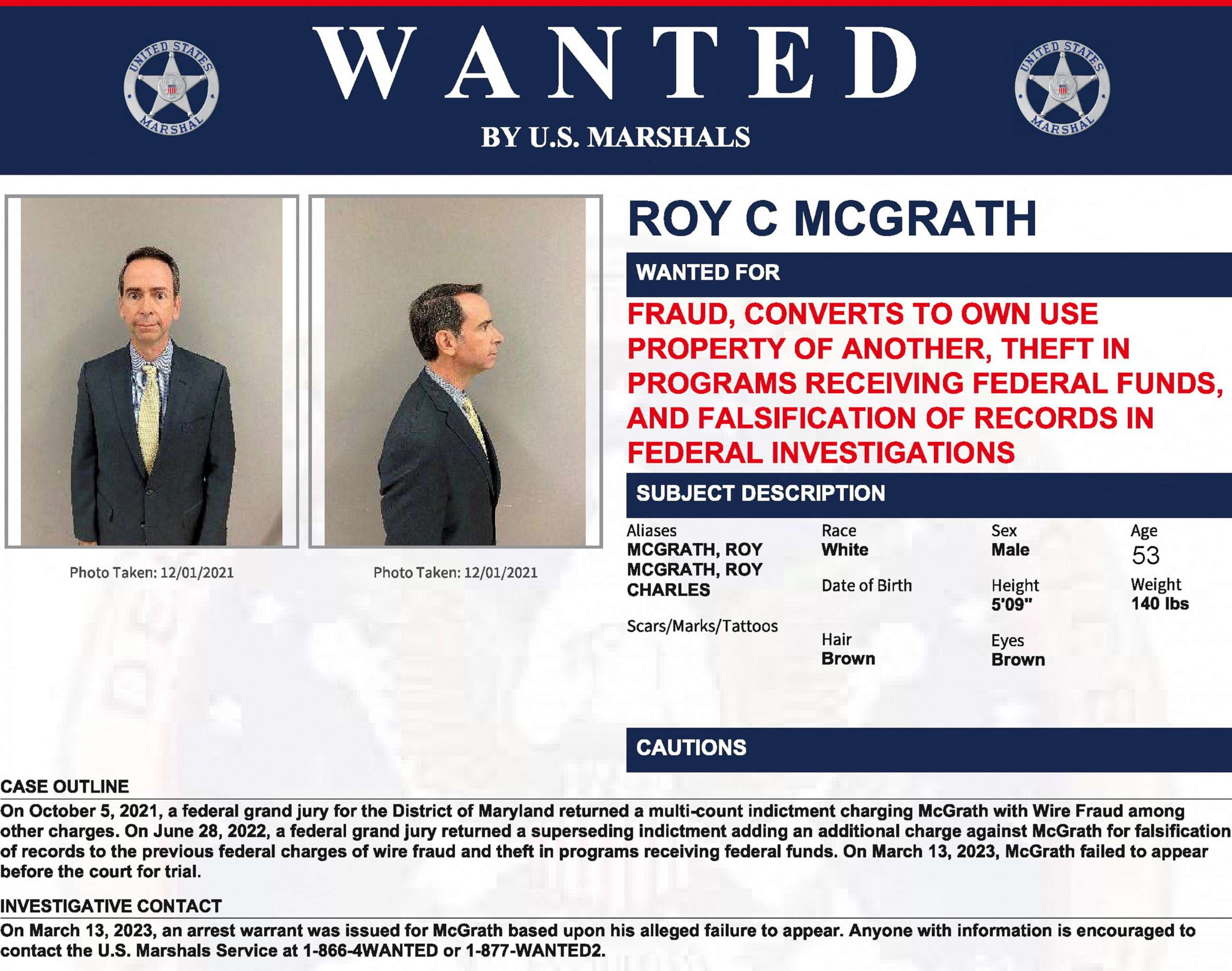US Marshals on the hunt for ex-Hogan aide charged in $276K fraud case
Roy McGrath did not show up for the start of his federal trial on Monday.
The U.S. Marshals on Tuesday issued a wanted poster for Roy McGrath, an ex-chief of staff to former Maryland Gov. Larry Hogan who is accused of stealing hundreds of thousands of dollars while working for a state agency.
The Marshals are "now seeking to apprehend the former Maryland governor’s top aide after he failed to appear in court on Monday, March 13," the agency said in a brief statement posted on Twitter.
McGrath was charged in 2021 and 2022 with wire fraud, embezzlement and falsifying documents stemming from his time running the state-owned Maryland Environmental Service, a position to which he was appointed by Hogan before becoming a top gubernatorial aide, federal prosecutors have said.

According to prosecutors, McGrath allegedly falsified documents in order to receive more than $276,000 related to his time at MES, which provides services like water and wastewater management, solid waste management, composting and recycling.
McGrath is accused of "caus[ing] the MES Board of Directors to approve paying McGrath a $233,647.23 severance payment—equal to one year’s salary—upon his departure from MES by falsely telling them that the Governor [Hogan] was aware of and approved the payment," among other suspected crimes, prosecutors said last year.
He also allegedly submitted false time sheets and allegedly attempted to delete documentation from a board of directors meeting about his compensation.

McGrath was living in Florida and was supposed to be in Baltimore for the start of his trial on Monday, according to the Marshals -- but he did not show up.
A lawyer for McGrath did not respond to ABC News' request for comment.
Prosecutors have said McGrath faces a maximum sentence of 20 years in federal prison for each of the five counts of wire fraud; a maximum of 10 years in federal prison for each of two counts of embezzling funds from an organization receiving more than $10,000 in federal benefits; and a maximum of 20 years in federal prison for the charge of falsifying a document if convicted.




